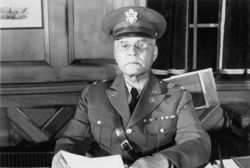This article is from ABC News. It is about the new release of a film "Color of the Cross" where Jesus Christ is depicted as a black man. I am especially looking forward to this movie. I found it most interesting to read the statements they have received about the movie, especially the one saying that black people are the only race that do not worship a God in their own image. At the end of the article it is said by the director that having multiple images of Jesus out there spreads the message that color doesn’t matter. Well I believe it does. Jesus was not fair haired and blue eyed. In the Bible, it says his hair was like wool. It is important to depict him correctly.. it is a ploy to make us all worship a man that looks like the ones running the country. Don’t fall into the trap, think for yourself. Its not about separating the races its about empowering them and making them equal, truly. We have been dragged in the dirt for so long we were even given the religion of Christianity by the slave owners. The Arian image of Jesus goes back that far. Like I said it does matter the race because the truth deserves to be told, and reconfirmed.
Here is the article below
Oct. 25, 2006 — It's a familiar image for millions of Christians: Jesus, with a crown of thorns, hanging from the cross.
What color is he?
In a controversial new film opening Friday, he is black.
"Color of the Cross" tells a traditional story, focusing on the last 48 hours of Christ's life as told in the Gospels. In this version, though, race contributes to his persecution.
It is the first representation in the history of American cinema of Jesus as a black man.
"It's very important because [the film] is going to provide an image of Jesus for African-Americans that is no longer under the control of whites," said Stephenson Humphries-Brooks, an associate professor of religious studies at New York's Hamilton College and author of "Cinematic Savior: Hollywood's Making of the American Christ."
What Jesus looked like has long been debated by theologians around the world.
Different cultures have imagined him in different ways, says Stephen Prothero, chairman of the religion department at Boston University.
In Japan, Jesus looks Japanese. In Africa, he is black. But in America, he is almost always white, like the fair-haired savior painted by Leonardo da Vinci in "The Last Supper" in 1495.
Film to Open in Black Neighborhoods
While some black churches have images of a black Jesus behind the altar and others have said that Christ was black, Prothero says "none of those arguments or images have filtered much into the mainstream."
Filmmaker Jean Claude LaMarre set out to change that with "Color of the Cross." LaMarre, who plays Jesus, wrote, directed and financed the film. It will open in 30 theaters in predominantly black neighborhoods.
"Black people in this country are the only race of people who worship a god outside their own image," says LaMarre, 38, adding that showing Christ as a black man is "the most poignant way to deal with the issue of race in this country because it goes to the heart of how we look at the world."
It also provides a positive image of blacks, something that's been scant in the U.S., says the Rev. Cecil "Chip" Murray, longtime leader of L.A.'s First African Methodist Episcopal Church and a producer of the film.
"It could be revolutionary because, for four centuries in our nation, blacks have been at the lowest end of the stratum," he says. "I think it will traumatize the United States more than it will foreign nations who, to some extent, don't have a centuries-old concept of equating black with negativity."
Humphries-Brooks agrees. Other countries are likely to view the film "in a more detached manner," he says, "because of the way (they) see our race-relations problem."
Why does race matter in the story of Christ?
"Jesus isn't in the hands of historians," Prothero says. "What we have now is our own debate and, in that debate, race has to be a factor because race is a big predicament in American life."
Film is a powerful place to have the discussion, says Humphries-Brooks, who calls the medium "one of the last places that is quasi-public for the formation of values in America."
"Artistic and aesthetic views are as important in developing religious values as the words we speak. Everybody goes to the movies. Not everybody goes to the same church."
Filmmaker LaMarre thinks the film can only have a positive effect. "The message is that color, a colored Jesus Christ, doesn't matter," he says. "That's why the movie is important. When you have one prevailing image out there, it suggests color does matter."
from ABC News







